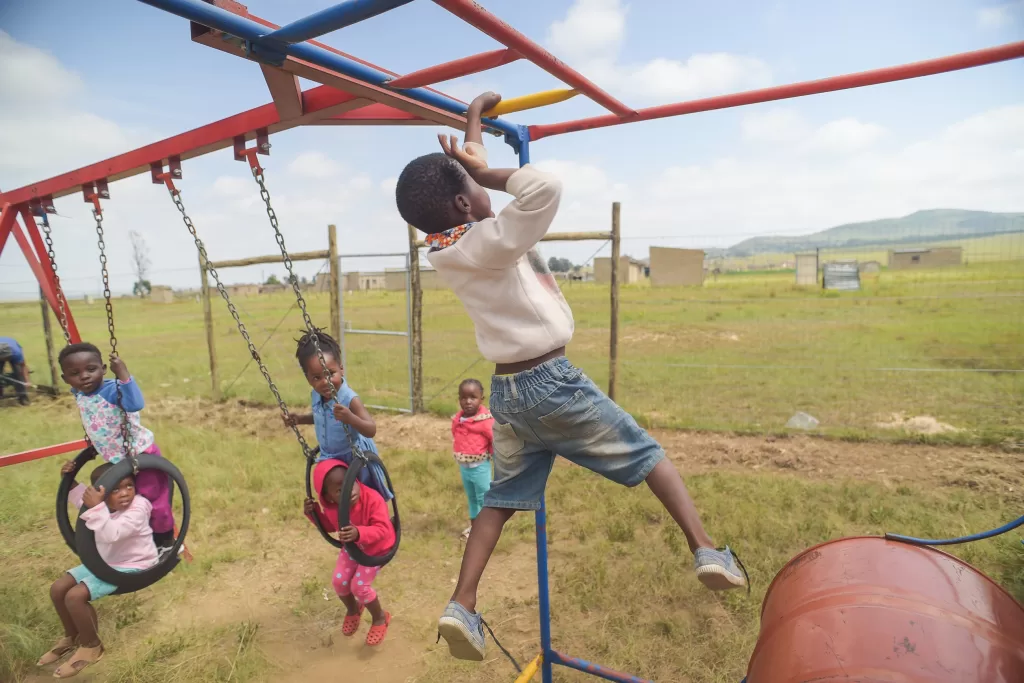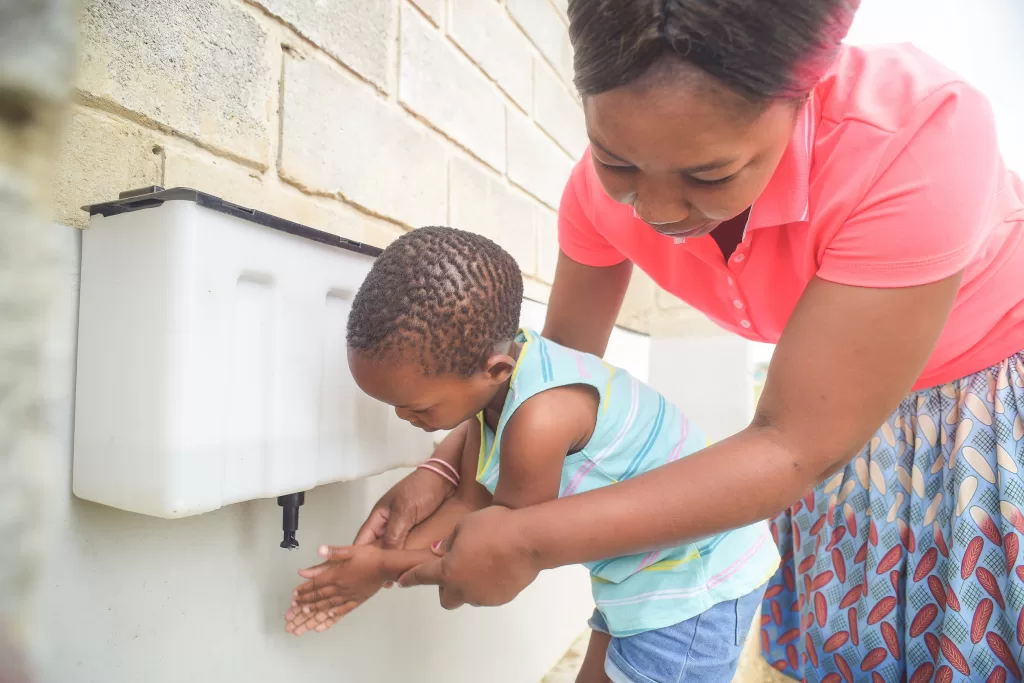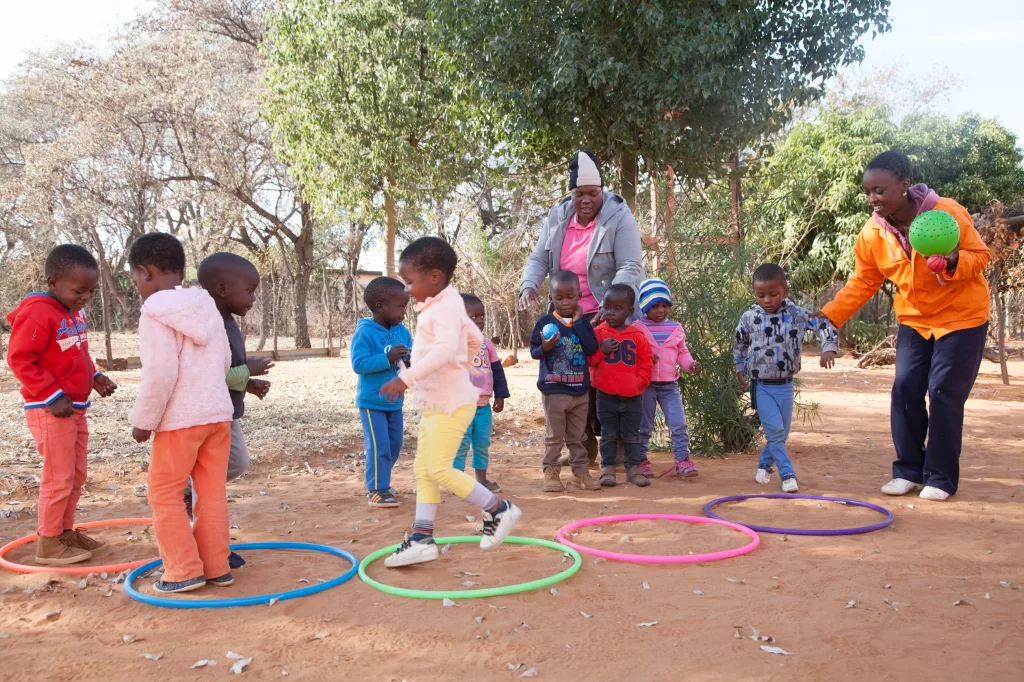Thursday, 22 February 2024 – Despite the President’s signalling of early childhood development (ECD) as a key priority in his State of the Nation Address, the 2024 budget failed to allocate the funds necessary to fulfil all children’s rights to quality ECD services – compromising their lifelong prospects and the future prosperity of South Africa as a whole.
The ECD sector is beset by chronic underfunding, inadequate infrastructure, low wages and poor working conditions. Only a third of 3-5-year-olds have access to an ECD programme. Of those that do, 57% fail to “Thrive By Five“, starting school on the back foot as a result of inadequate nutrition and delayed physical and cognitive development.

ECD subsidy value declines in real terms
Despite these challenges, the ECD subsidy remains pegged at just R17 per child per day for the sixth year in a row, decreasing its real value by a quarter. During the same period, food prices have increased by about 39%. This means that in 2024/25, it will be even more difficult for ECD programmes in poor communities to provide a safe environment, nutritious food, decent working conditions, and age-appropriate stimulation.

Worse, the subsidy only reaches about 35% of eligible children who are attending an ECD programme. Over 1 million children attending close to 50,000 unregistered township and rural ECD programmes do not qualify. These programmes require government support to meet registration requirements. The R58 million cut to the infrastructure component of the ECD conditional grant in the 2023 adjustments budget left only R44 million available to support unregistered ECD programmes in 2023/24. The allocation of R157 million in 2024/25 rising to R161 million in 2025/26 is welcome but much more needs to be done to ensure that provincial education departments are capacitated to provide the support that is required to register ECD programmes on a mass scale.

We are therefore concerned that the provincial equitable share, which funds provincial education departments and contributes heavily to the total ECD subsidy budget, is to be reduced in real terms for the fourth year in a row. The equitable share will grow at an average rate of 3.2% between 2023/24 and 2025/26, well below CPI inflation of 4.9%.
We cannot keep expecting the ECD workforce – mostly black women, 90% of whom are paid less than minimum wage – to nurture our youngest children without proper state funding or support.
Proposed nutrition support programme requires adequate funding
R197 million has been retained for the Department of Basic Education (DBE) to pilot a nutrition support programme that targets low-cost ECD centres in 2024/25.
We hope that the lessons learned from the DBE’s stewardship of the National School Nutrition Programme will be applied to the design of this pilot. Following the pilot, we expect to see sufficient funding for the delivery of nutrition to all young children in registered and unregistered ECD programmes.
One in four children under five are stunted in South Africa, requiring a sustained effort from government and the private sector to improve access to nutritious food in low-income communities.
Child Support Grant (CSG) still below the food poverty line
70% of children live in families below the upper-bound poverty line of R1,558 per person per month. The forecasted growth of 4.5% in the value of the CSG over the medium term shows that government has not properly considered the recommendations of the 2023 Review of Child Poverty produced by the Children’s Institute for the Department of Social Development, which found that “child poverty rates increased in 2021, and the below-food-inflation increases to the CSG over the past three years are likely to lead to a further increase in child food poverty. The scenarios show that by increasing the CSG amount, it is possible to reduce the high child poverty rates significantly, alongside even greater impacts on the depth and severity of child poverty.”
The food poverty line of R760 per month quantifies the cost to an individual of meeting the absolute minimum nutritional requirements for survival. The 2024 budget increases the CSG by 5% from R505 to R530 per child per month, ensuring it moves further away from the food poverty line since food price inflation reached 11% in 2022 and 9% in 2021.
2024 budget undermines children’s early development
Overall, the 2024 budget’s R80 billion reduction in non-interest expenditure over the next three years will reduce the real value of the social wage at a time when the cost of food and child care continues to increase. This austerity budgeting directly undermines young children’s access to healthcare, supportive caregiving, nutritious food, clean water and quality early learning and care opportunities.
We call on Parliament to reject this budget and require the Minister of Finance to:
● Reverse austerity budgeting and re-commit to its Constitutional obligation to realise all socio-economic rights, especially children’s rights.
● Increase the ECD subsidy so that it reaches R46 per eligible child per day by 2029.
● Increase the budget for pre-registration and infrastructure support for ECD programmes.
● Ensure the Department of Basic Education and provincial departments of education, social development and health have the necessary resources to expand and improve access to ECD services.
● Provide sufficient funding for the delivery of nutrition to all young children in registered and unregistered ECD programmes.
● Increase the Child Support Grant from R530 to the food poverty line, currently R760 per month, initially for children aged 0 to 5.
Statement Issued by the Campaign for Real Reform for ECD
About Real Reform for ECD (RR4ECD)
Real Reform for ECD (RR4ECD) is a broad-based alliance advocating for holistic, well-funded, inclusive, and quality early childhood development (ECD) services. It supports a broad network of over 600 practitioners and is backed by more than 200 organisations. For more information, visit their website: https://www.ecdreform.org.za/
Photography credit: Ilifa Labantwana





























